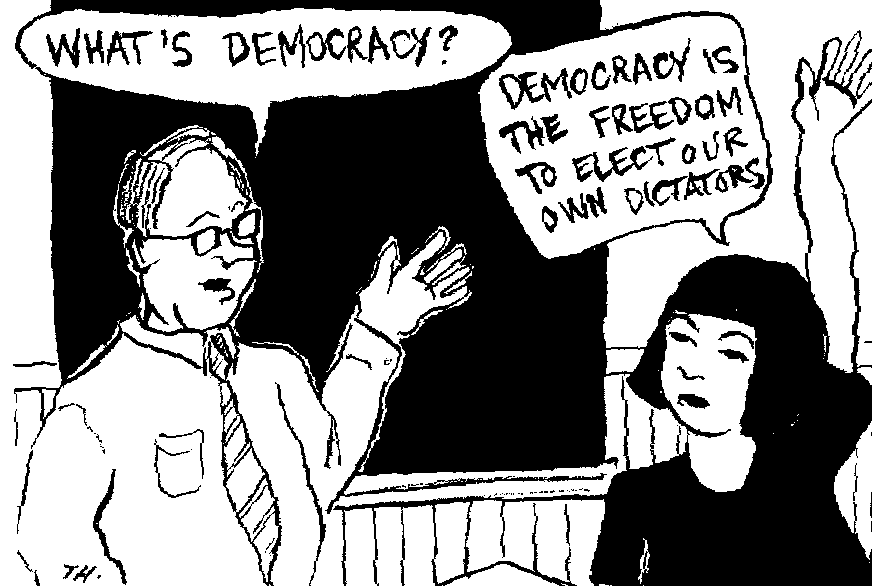Democracy was defined by Abraham Lincon as the ‘Government of the people, for the people and by the people’. Since the main stress in any democratic set-up is on the people, it is a system that is most acceptable. Every single individual in the country is a part of the process of governing. The legislature is elected by the people. It makes laws for the people. The executive, selected from legislature, runs the country for the people.
This does not mean that democracy is an ideal system which makes the functioning of a government flawless. Democracy also has its drawbacks. It does not guarantee social justice. Sometimes those in power are corrupt. At times the governing bodies keep their actions as a secret and do not take the people into confidence. It is slow in functioning and is incapable of coping with emergency. But in spite of all these defects, democracy is the most effective form of government.
If democracy is to be effective, the people have to be alert. They must continuously keep a track of the activities of those to whom they have entrusted the reins of government. They must learn to raise a voice against injustice and atrocities. Democracy gives them this right and opportunity. But it is essential that they perform their duties as citizens faithfully and to the best of their abilities. If an individual is corrupt, he cannot expect those in power to be free from corruption.
Democracy is better because it is representative form of government. It treats everyone equally before the law, irrespective of caste, creed or sex. In a democracy, many religions flourish and enrich the cultural heritage of the country. It best reflects the will of the people in the government of the country.
– Tanvi Shah




0 Comments